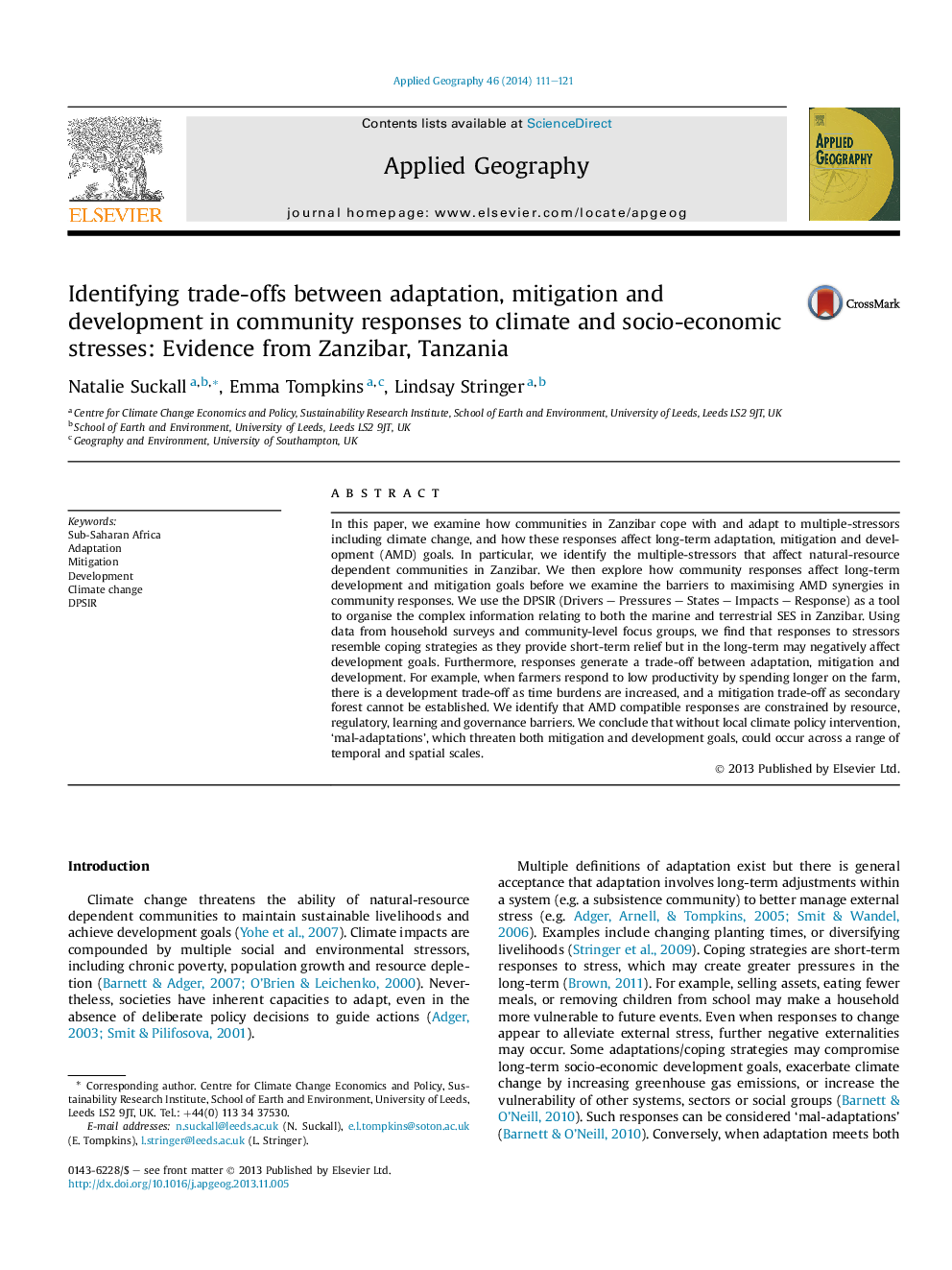| Article ID | Journal | Published Year | Pages | File Type |
|---|---|---|---|---|
| 83485 | Applied Geography | 2014 | 11 Pages |
•We evaluate the impacts of adaptation in Zanzibar on development and mitigation.•In the absence of policy, autonomous household climate adaptation is occurring.•Autonomous adaptation may hinder long-term development and mitigation goals.•Simple policies to remove barriers could encourage more effective adaptation.
In this paper, we examine how communities in Zanzibar cope with and adapt to multiple-stressors including climate change, and how these responses affect long-term adaptation, mitigation and development (AMD) goals. In particular, we identify the multiple-stressors that affect natural-resource dependent communities in Zanzibar. We then explore how community responses affect long-term development and mitigation goals before we examine the barriers to maximising AMD synergies in community responses. We use the DPSIR (Drivers – Pressures – States – Impacts – Response) as a tool to organise the complex information relating to both the marine and terrestrial SES in Zanzibar. Using data from household surveys and community-level focus groups, we find that responses to stressors resemble coping strategies as they provide short-term relief but in the long-term may negatively affect development goals. Furthermore, responses generate a trade-off between adaptation, mitigation and development. For example, when farmers respond to low productivity by spending longer on the farm, there is a development trade-off as time burdens are increased, and a mitigation trade-off as secondary forest cannot be established. We identify that AMD compatible responses are constrained by resource, regulatory, learning and governance barriers. We conclude that without local climate policy intervention, ‘mal-adaptations’, which threaten both mitigation and development goals, could occur across a range of temporal and spatial scales.
